3 Things to Do to Guarantee Weight Loss on GLP-1 Medicines, According to a Coach
Are you one of the many people who is using a drug like Ozempic or Wegovy to lose weight and want to maximize your weight loss? If the answer is yes, then listen up. Dustin Holston (@dietcoach4u) is a diet and fitness coach who has amassed a large following on TikTok for sharing videos about how to lose the most weight possible while taking one of the drugs. "Three things I want you to do this week on GLP-1 medicines to start guaranteeing weight loss. My name is Dustin. I work with over 4,000 clients in all 50 states in nine countries, and we specialize in diet and exercise programs for those on GLP-1 medicines," he says in the clip. Here is everything he recommends – and what Body Network's Resident RDN, The Diet Diva Tara Collingwood, says about it.
Start Resistance Training
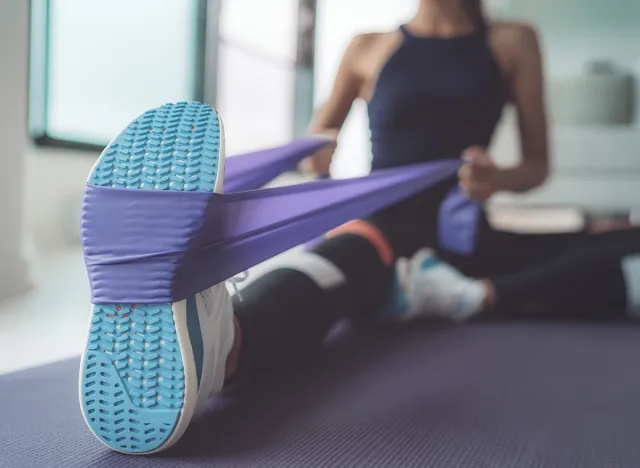
"Number one, I want you to start resistance training guys," he says. Holston explains that when you take these medicines, almost 40 percent of the weight you lose is muscle. "Muscle is what builds our metabolism. The more muscle we have, the more calories we burn. And if we're losing muscle rapidly, we're going to lose a lot of our metabolism," he continues. This "means you're going to burn less calories and you're going to lose less weight."
He Recommends Bodyweight Exercises or Dumbbell Workouts
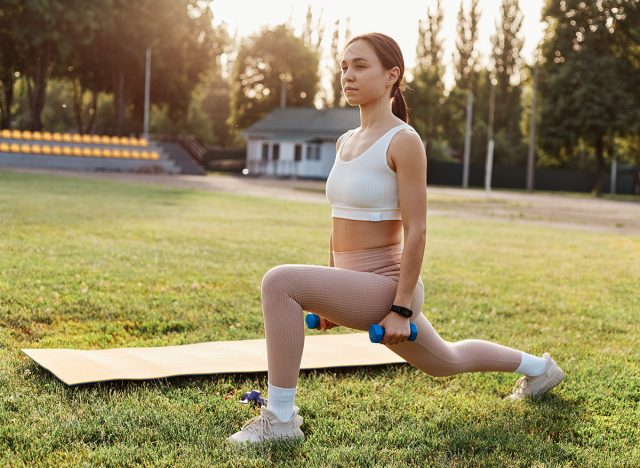
"One of the best things that you can do is start resistance training," he continues. "Now, this can be bodyweight exercises. You can do push-ups, crunches, squats, wall sits, and more. You could also do dumbbell workouts, resistance bands, kettlebells, gin, or no gym, but start being active. Try to do four days a week of some sort of exercise program," he recommends.
Consume a High Protein Diet
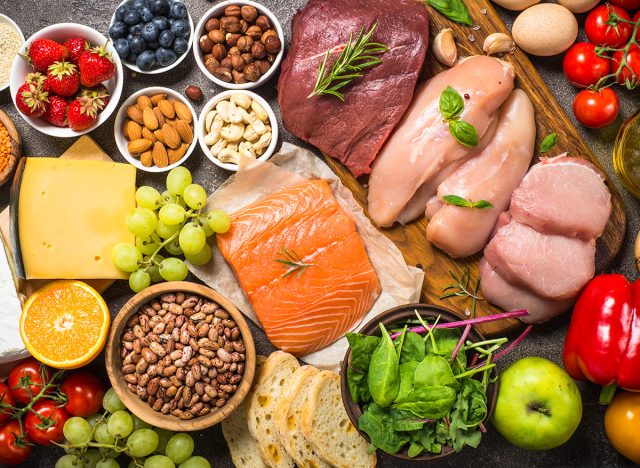
Next, he encourages a higher protein diet. "We actually see that eating a lower protein diet and working out, according to a 2018 study, caused weight gain," he reveals. "We don't want that. We want to burn more fat. We want to tone. We want to increase our metabolism. So we do need to eat more protein."
Start with 100 Grams of Protein
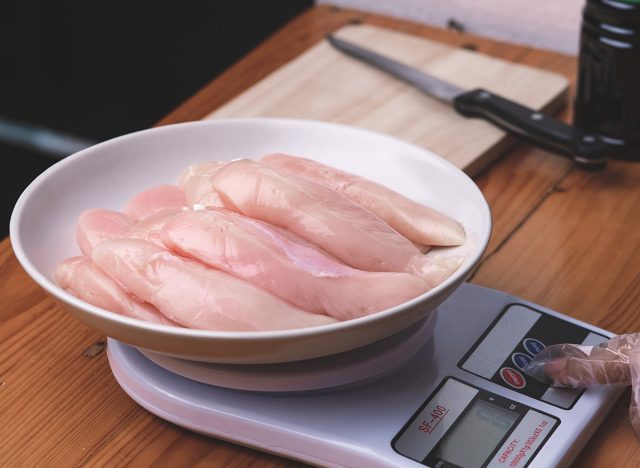
How much protein? "I would start with a hundred grams," he says, admitting "that is very difficult on GLP-1 medicines because of appetite suppression." So "working with a specialist like us that could teach you how not only to hit 100 grams, but even more to maximize fat burning and metabolism, we should start doing that immediately."
Understand You Will Need More Nutrients
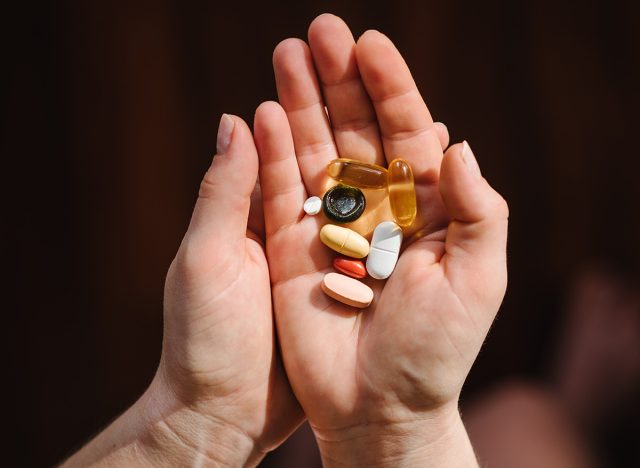
"Number three, when you start getting the vitamins, minerals, and nutrients our body needs, we have to remember that vitamins and minerals play a role in hormonal health, such as thyroid function, testosterone, cortisol, and other things. So even probiotics and your vitamins and your minerals like iodine or the amino acid tyrosine for your thyroid health or more is very, very critical," he says.
Take a High-Quality Multivitamin and Green Powder
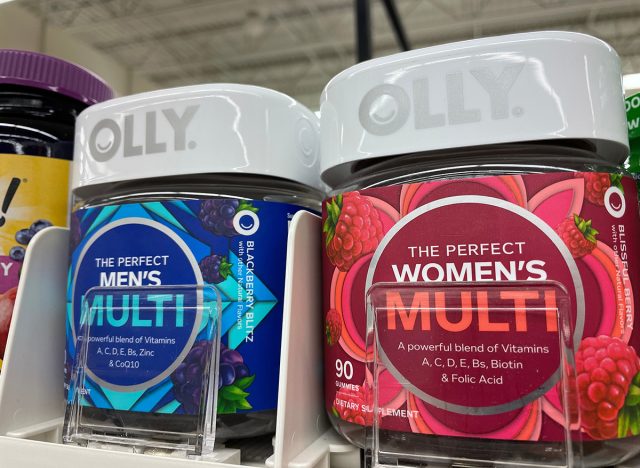
"And because we're on these medicines, we are highly more likely to be deficient or at least not optimized with vitamin and mineral use. So I do suggest a high quality multivitamin and a green powder to help us get that digestive enzymes and probiotics. Our body needs to really start optimizing itself," he adds.
Related: I Lost 40 Pounds in 1 Month and This is My Grocery List
Summary: Work Out, Amp Up Protein Intake, Get Your Nutrients In

"You work out, you eat more protein and you get your nutrients in, your results are going to explode."
Yes, You Should Lift Weights on GLP-1 Medicines
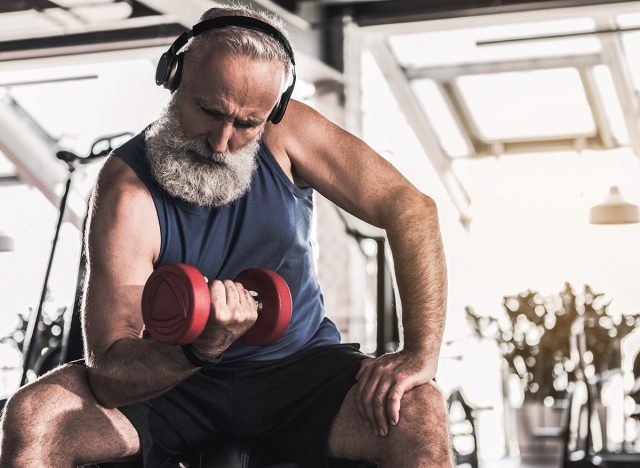
"The research does seem to support that a large proportion of the weight lost with the medications is muscle mass," says Collingwood. "Of course, people are still losing some fat, but many are losing a lot of muscle as well. The best way to prevent that is to make sure you are doing weight training to attempt to tell your body that you need that muscle and it can't have it for energy!"
Yes, You Should Amp Up Protein Intake
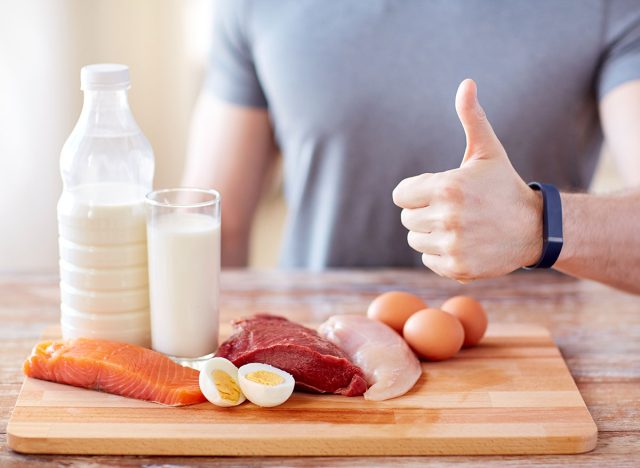
"Protein is necessary, and I always recommend a higher proportion of protein when someone is on a weight loss diet," Collingwood adds, noting that everyone is different in terms of how much they will need. "I calculate based on gender (women need less because they weigh less), activity level and calories recommended that they eat," she says. "I agree that working with a professional like a registered dietitian nutritionist is a great idea to get expert advice on how much you need and how to get the best quality protein throughout the day."
Related: 15 Quick Ways to Lose Body Fat Percentage in a Week
Yes, You Should Take a Multivitamin

Collingwood also agrees that you should take a multivitamin because when you are eating less food, "you aren't getting as many vitamins and minerals," she explains. "A multivitamin mineral supplement is a good idea when you are embarking on any weight loss plan to make sure you are getting the necessary nutrients you need while cutting back on food intake. Probiotics, Vitamin D, omega-3 fats, and a multivitamin mineral are the minimum that I typically recommend."
💪🔥Body Booster: Don't rely on GLP-1 drugs alone to lose weight. You will reap the most benefits by lifting weights, amping up your protein intake, and taking a multivitamin along with them. And if you enjoyed this article, don't miss 20 Incredible Ozempic Success Stories of All Time.





